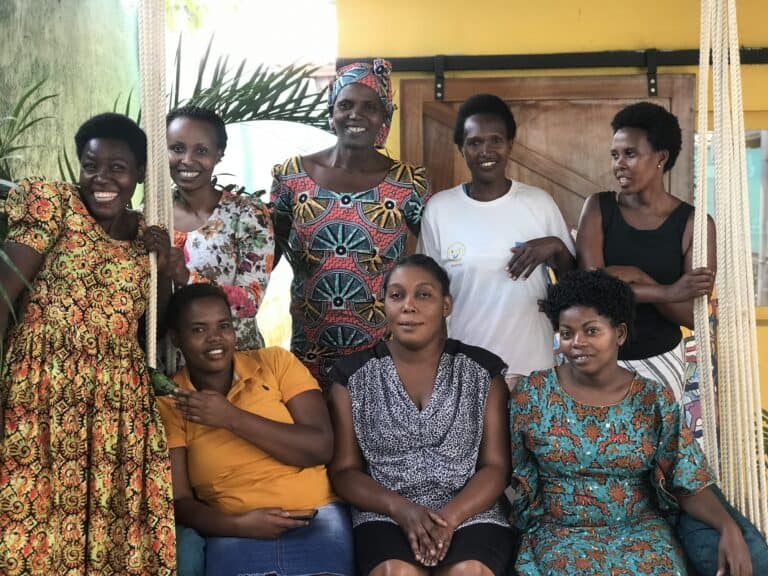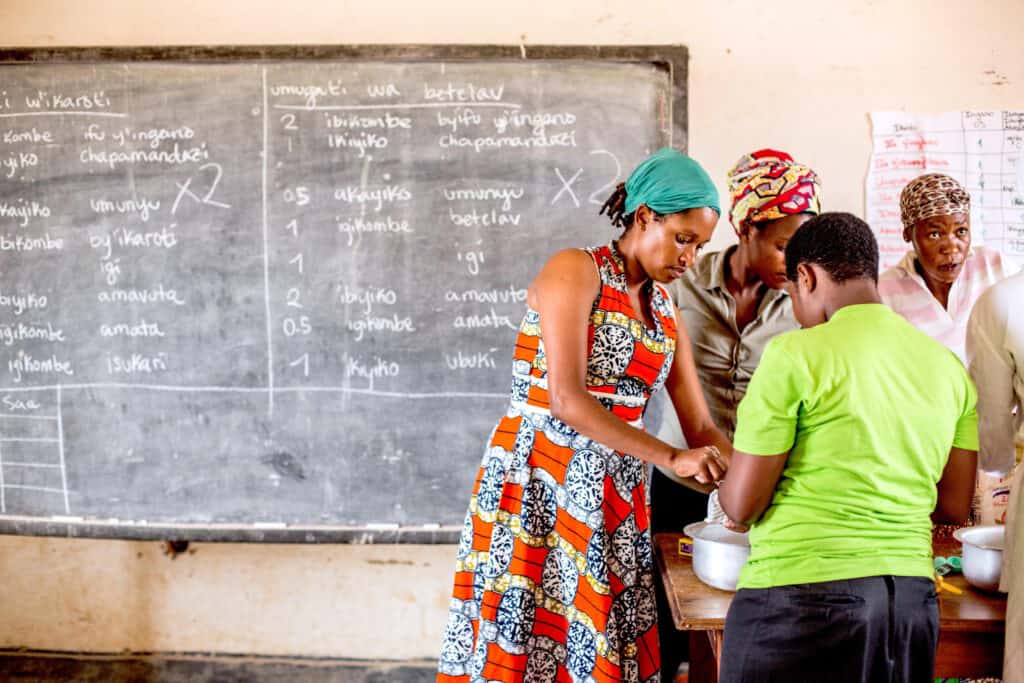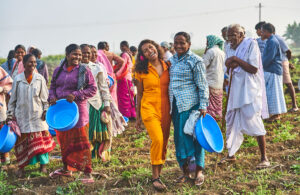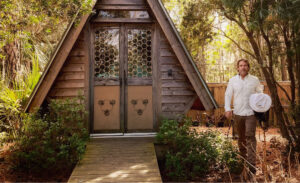
Latitude Craft Chocolate – A Vertically Integrated Social Enterprise
Latitude Craft Chocolate is a sustainable and transparent bean-to-bar chocolate company made at its origin in Uganda.
Rwanda, Africa
Destine Manson June 8, 2020
Markey Culver, CEO and Founder of The Women’s Bakery, realized the importance of breaking bread with others after coming to the rural village of Bushoga, Rwanda in 2010. As a volunteer with the Peace Corps, Culver traveled to the East African country, and adopted the lifestyle of the people. Her mission was to figure out how to improve the quality of life for the Rwandan communities. After her first year, Culver decided to get creative with food; she began making her own salads with local produce such as cabbage, avocados, onions, and tomatoes. Soon enough, she was teaching other women in the village how to make salads using the ingredients they had been growing for years. To complement the salads, Culver was inspired to bake bread using a recipe from her Peace Corps manual. From the same manual, she followed directions for constructing a Dutch oven to bake the bread using two pots and four stones. The women in the village asked if she could teach them how to make it as well, which led to the creation of The Women’s Bakery.
We spoke with current development director Madeleine Binsfrahm about how the social impact of The Women’s Bakery has changed lives for women in different towns across Rwanda since that first lesson.

Mood of Living: What is The Women’s Bakery? What do you do and where are you located?
Madeleine Binsfrahm: The Women’s Bakery is a social enterprise and our mission is to economically empower women and create access to affordable bread in East Africa. On the U.S. side, we are a non-profit and in East Africa, we own and operate three bakeries and a franchise bakery in Uganda.
MoL: What inspired your founder Markey Culver to start The Women’s Bakery?
M.B: In 2010, Markey joined the Peace Corps and was placed in a rural village in Rwanda. One of the requirements of the Peace Corps is to spend time in solidarity in a village. During this time, like the villagers she only ate one meal a day. Culver started making salads with the ingredients that were available locally with and for the women in the village. Eventually, she made a loaf of bread over a fire with a small group of women. They all gathered in her home for bread making lessons. As soon as the bread was done all the women took the bread and fed their kids. Malnutrition is very prevalent in East Africa and Rwanda so food is important. Markey taught people to add nutritious ingredients like beets, carrots, and sweet potatoes into the bread. Weeks later the women went home and were making their own bread. She found out one of the women was going to the market and selling her own bread and that was Markey’s aha moment.
MoL: What is your business model?
M.B: When it first started the idea was to teach women how to own and run the bakeries themselves. What turned out was women didn’t have access to the education and employment necessary to run a business. We employ women who have not previously had access to formal education. We recruit those women and then we teach them not just how to bake, but nutrition, hygiene and baking principles. Then we employ a team of managers to help with production and oversee sales all based in Rwanda. In the U.S. we have a small team focused on human resources and communications.
MoL: How did The Women’s Bakery partner with the Rwanda Workforce Development Authority?
M.B: It took a lot of time. So, it’s really important that we build strong, lasting relationships with local, regional and country-wide authorities. Providing an educational component is critical. We wanted the women to be able to have a certificate at the end of the training program with the RWA to show what they achieved. We worked with them to create an educational program that was accredited. We received a grant from the Abbott fund to provide bread for a local school. We worked with a local government to make sure we are in partnership with the local government because they create a lot of access to the community.
MoL: What is the importance of bread in your community and around the world?
M.B: In our community, we are able to pack bread with nutrition. Our basic and most affordable bread product is packed with protein. Honey twist, one of our most popular, contains about 7 grams of protein which is really important when you consider that people are only eating one meal a day [in Rwanda]. We also have a popular line of sweet potato bread which is high in vitamin A. The honey twist costs about 10 or 11 cents for a single piece of bread. We intentionally keep the bread prices low so lower income communities can afford to buy the bread. Our business model is to make sure it is both healthy and affordable. Making bread together can cause such an intense emotional reaction for so many people around the world. It’s like the saying goes, we all enjoy breaking bread with one another. A lot of people, since the coronavirus, are talking about how they are now baking their own bread at home.
MoL: What does a day look like at the bakeries? Who are the bakers and customers?
M.B: We have three different bakeries in Rwanda. Our flagship bakery is in Kigali, that is the capital city. The bakery there attracts a variety of clientele to the cafe portion. It has a very open, more westernized feel. Then there is our other bakery 30 minutes away from the flagship bakery off of a crowded street. There is no running water in that bakery, but there is a water pump nearby that provides water. Our third bakery feels completely different as well. In Gicumbi, we built a bakery to be intentionally next to Rwanda’s oldest refugee camp, the Gihembe Refugee Camp. Many of the people who live there have lived there for their whole lives. It is a house that we converted into a bakery. Unlike most bakeries that you find in the U.S., a vast majority of the baking is done by hand. We have a mixer, scale, and a triple deck oven. The bakers are shaping each piece individually. The women produced over 500,000 units of bread by hand. The majority of our bread goes out for distribution. In Rwanda, it’s taboo for women to ride bicycles so all of the delivery people are men. The goal of distribution is to get our product out to markets. We estimate that 60% of our bread consumers are children.
MoL: What is your impact on the community?
M.B: Due to coronavirus, we had to put a temporary halt on our bakery operations and since then Rwanda has completely shut down everything. Before we put a halt on things, we made sure the women in our bakeries were given a 30-day supply of food. Some women have seven children, some women have two children, so we really want to make sure our women are able to support their families. Our impact on the community, the most immediate, is that all of the family members receive healthcare to cover everyone.
MoL: What are the personal relationships like between local communities and The Women’s Bakery?
M.B: Our bakers impact everyone. They really show other women and their daughters what is possible for a woman to accomplish and achieve. We also bring in a mental health counselor once a month to each bakery. We are in the process of building baby houses which are on-site daycares, because the vast majority of our employees have children. Also, all of our women have bank accounts.

MoL: What are some innovations The Women’s Bakery is developing? Future goals?
M.B: One of our biggest goals is to bring all three bakeries up to profitability. We look forward to 2021, to developing a partnership to build our next bakery and increase our reach because we want to increase production. One of the ways we want to do that is by partnering with schools and getting bread into schools, particularly primary schools.
MoL: What steps does The Women’s Bakery take to ensure economic and social change within the bakeries and in the surrounding community?
M.B: We actually created a social impact department through the generous support of a donor to make sure we are working with the women. We take surveys to find out where women are, how much are they saving, is the mental health counseling working, what are they lacking 一and we then identify areas of growth. For example, last year the women identified that sexual and reproductive health is really important. They need more access to medical professionals and doctors who have a progressive view of women’s health. We measure salaries and salary increases and one thing that is particularly interesting is that the women have more confidence the more that they learn. You can see the progression as we create more access.
MoL: What is the best way for people around the world to contribute or get involved?
M.B: Right now, more than ever we could use cash donations because we are committed to paying all of our team’s salaries during the shutdown and making sure the women have enough food. Your readers can help us by going to womensbakery.com and making a donation.
Mood of Living: The Women’s Bakery is continuing to innovate and engage with the communities they impact in a way that prioritizes opportunity and the voices of women in Rwanda. Women are able to double their incomes working for the bakeries as the bakeries continue to provide more sustainability and employment opportunities in Rwanda. For great ideas to come into fruition, it takes a village of willing workers to turn it into a reality. Now more than ever is the time to visit their website and donate to support the bakers, who are often the breadwinners for their families. The Women’s Bakery is dedicated to being able to provide continued health care services. “For them, bread has become a catalyst for choice,” said CEO Markey Culver. “And choice, as I see it, is how you start to challenge the cycle of poverty.”
Photography courtesy of The Women’s Bakery

Latitude Craft Chocolate is a sustainable and transparent bean-to-bar chocolate company made at its origin in Uganda.

Creating an equitable spice trade by disrupting an outdated trade system and putting money and power into the hands of Indian farmers.

Helping to save the bees by building hives, pollinating flowers, powering food supply, and spreading beauty.